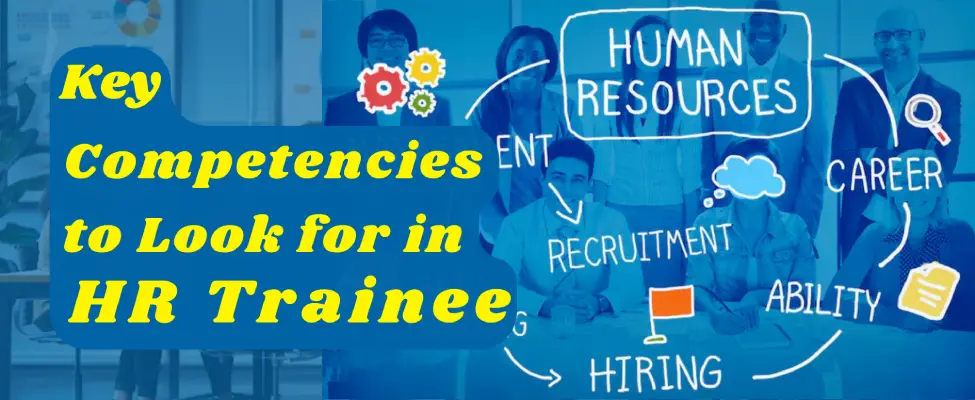Category
- Late Coming Policy
- Whistle Blower Policy
- Transfer Policy
- Promotion Policy
- Mobile Policy
- Job Rotation Policy
- Laptop Policy
- Reward and Recognition Policy
- Code of Conduct Policy
- Leave Policy
- Travel Policy
- Employee Referral Policy
- Attendance Policy
- Recruitment Policy
- Performance Appraisal Policy
- Probation and Confirmation Policy
- Internet Policy
- Dress Code Policy
What is Employee Promotion Meaning & its Definition?
Taking an employee to the next level of grade and designation is termed as promotion. A promotion is an upward advancement of an employee which gets him/her to a higher position, better pay and privileges, bigger profile and job responsibilities.
“Promotion is the advancement of an employee to a better job-better in terms of greater responsibilities, more prestige or status, greater skill and especially, increased rate of pay or salary. —Pigors and Myers
An employee’s promotion is elevating him/her to a higher job role with more roles and responsibilities so that he or she is able to meet the specifications of the next profile in cadre.
Table of Content
What is Employee Promotion policy in HRM?
“Employee Job Promotion refers to the upward movement of employees within the company for a new or higher job role, tasks and responsibilities”.
In human resource management, it is important to have a robust promotion policy communicated explicitly to the employees. Through the job promotion policy, criteria and terms of recommending and approving positions in the organization are governed.
According to a survey, there are a very few organizations, which explicitly announce their job promotion policy and criteria among employees. A well prepared and communicated promotion policy sets the tone for the employees. Sometimes, employee expects a promotion for this performance without realizing his potential.
A promotion should be offered to employees who are prepared and have the potential to take up new roles. However, a good performer should be rewarded and not promoted. Organizations tend to reward performers by promoting them without understanding their potential to take up the new profile which they will be given upon job promotion.

Eg. An individual contributor performing well in his role, if promoted to handle a team with added responsibilities which he or she may not be good at, can result in a wrong decision. At times, employees fail to perform also if they are entrusted with additional responsibilities.
Therefore, it is advised that recommendations for promotion should be well evaluated through a series of competency assessment so as to understand the gap between the current level of performance and expected levels, in order to avoid any organizational fiasco.
Promotion is a critical stage in the life cycle of an employee as well as for the organization. It is very important to select the right candidate at the right time for promotion. Potential to add more responsibilities and exhibiting good performance in the current role are two different things; organizations often misunderstand the Performance and Potential. The two Ps however similar they may sound are different and are to be assessed differently.
What is the Employee promotion Strategy, criteria at workplace?
Promotion strategies should be carefully crafted at workplace as these depend upon a number of factors other than just performance. Every organization has different strategies of employee promotion. Here are some commonly used criteria which many of the Indian organization follow:
- Length of service – it is important for an employee to spend a considerable amount of time in the organization before he or she is recommended for promotion so that he or she is acclimatized with the working environment, policies and overall culture of the organization. Usually this time ranges from 1 – 2 years.
- Performance – Performance plays a crucial role but is not the only deciding factor for promotion. In most of organization policies, usually 4 or 5 raters only are eligible for promotion.
- Potential – Employee’s potential to take up higher roles and responsibilities are significant criteria in deciding whether the employee should be promoted or not. Many companies opt for identifying high pot employees through assessment centers and psychometric tools to identify high pots and hence, recommend them for taking up higher roles in the organization.
- Organization Structure – Employee may deserve a promotion but unless there is a vacancy in organization hierarchy for the new role, he or she may not clear through. Organizations which are highly structured have an approved position and budget for each role in the hierarchy, unless there is a vacancy at a position, the next in line employee may not to be able to succeed to the position. However, in developing organizations and start-ups, the structures are open and flexible and this factor may not be a constraint.
- Tenure in a particular role/ position – Unless an employee justifies his existence in a role which he or she is currently in, promoting him to next level wouldn’t make sense and he or she would need time to stay and perform at a particular position before hopping on to next role. The range of tenure varies from 2 – 3 years in organization.
While these are important points to be considered in an organization’s promotion policy, it is favorable for organizations in any industry to promote at least 8-10% of their employees each year in order to rotate employees between the hierarchies and get the new ideas flowing. For a successful organization, getting new perspective for each task and function is as important as getting revenues and numbers. A new person in a new role will give a new perspective to an existing process which may add a lot of value in the overall value chain of the organization. For the employees, the new designation and grade will give higher authority, more responsibilities, larger span of control, decision making, better pay etc.
Why is promotion important in Human Resource Management for employees and its benefits?
The process of promotion is important in any organization as without it there will be stagnation in the growth and development of employees. If the employee is made to work in the same role, at the same position for years, there will be monotony in his job which is neither healthy for him/her nor for the environment he or she is working in.
Promotions and change of role helps the employees move forward in their career, gives them more challenges, enhances their learning curve, keeps them engaged with the job.
Types of Staff or employee Promotion and its purpose/ objective:
Many companies practice different types of promotion:
- Seniority based promotion – This is when an employee has spent considerable amount of time in a job role and is required to maintain the overall hygiene of the organization. This happens especially with the senior employees when they have spent a good amount of time with the organization in the same profile/ position. This type of promotion keeps the employees going, reduces attrition and is easy to identify.
- Merit based promotion – This is solely done on the basis of knowledge, skills, capability and performance. It is a true reward for the deserving employees, enriches the organizations’ value chain and is good way to keep up the employee morale.
- Seniority based, merit based promotion – This is the most appropriate promotion type which considers the merit as well tenure of the employee while evaluating for promotion.
- There has been debate and various opinions on whether the promotion should be seniority based or merit based, management and leadership would always have their take on merit based promotion while trade and labor union would favor seniority based promotion.
Advantages and Disadvantages of Promotion
Backfilling a position in the organizational hierarchy through promotions is a great idea for an organization who values its employees as it:
-
Creates positivity in the overall environment, employees moving up the ladder raises their self esteem, confidence and morale.
-
New perspective to a position by someone who already understands the business.
-
Quick filling of the vacancy through internal resource.
-
Developing a competitive space among colleagues and fellow members.
However, it may have some cons as well like:
-
Missing on the opportunity of getting an external perspective
-
A seniority based promotion might let employees to feel it as a matter of right irrespective of their performance. Employees may feel that every 2-3 years they will get a designation upgrade even If they don’t perform.
Promotion Policy - Sample
Introduction
Through this policy, the organization facilitates growth & advancement of its employees. This policy enhances the upward mobility of employees & complements the organization values encouraging employee development.
The organization understands that in the process of meeting company’s objectives, the job responsibilities of an employee may change or enlarge. The organization intends to provide maximum opportunities for promotion, consistent with the business needs & excellence, affirmative action, equal opportunity & a steady performance.
Objective
-
Encouraging growth & advancement of employees within the system.
-
To ensure unbiased, fair & transparent movement of employees.
-
To fill in the vacancies utilizing talent from inside the organization.
-
To introduce formal guidelines for planning succession of critical positions.
Scope
- This applies to all payroll employees of the organization
Definition
- Promotion – For the sake of policy, an employee is considered as promoted if his current grade is upgraded.
- Job Enlargement – Job Enlargement occurs when there is an increase in the number of tasks associated with a certain job. It means increasing the scope of one’s roles & responsibilities which has to be qualitative not quantitative.
- Appraisal Rating – The rating received by a person during the performance appraisal post the normalization process for the purpose of bell curve can be considered as appraisal rating.
Eligibility
A promotion policy signifies management’s commitment to recognize & reward excellent performance. It motivates people to aspire for advancement opportunities within the organization.
A person is eligible for promotion if:
-
He or she has completed at least three years & two appraisal cycles in the current role.
-
He or she has been recommended for grade change by his appraiser & reviewer.
-
His/her appraisal ratings in the past should show an increasing/ improving trend.
-
Feedback score (if applicable) is more than 4.
-
Performance is observed consistent or is increasing consistently over the years.
-
His current role is enlarged by adding some significant & constructive tasks.
-
Employees working in people management role can be considered for promotion if they are graduate or preferably post graduate.
-
h) Apart from the performance criteria, the person shall have a good service record in terms of the following:
|
Ability to multi-task |
Yes |
|
Right behavior with colleagues, supervisors & subordinates |
Yes |
|
Good attendance record |
Yes |
|
Willingness to accept tasks |
Yes |
|
Honesty & Sincerity |
Yes |
Guidelines
-
A promotion is a career opportunity for an employee involving additional roles & responsibilities; it may also involve an increase in salary and a re-designation.
-
Promotions shall happen once a year only during appraisals.
-
Any employee nominated for promotion during appraisal shall be mandatorily evaluated on the above criteria.
-
Promotion shall always lead to adding more responsibilities.
-
In case of one or more recommendation at the same position, employee with a higher qualification shall always be considered.
Exception
Any exception to the policy shall have special approvals of the CEO & HR Head.
HR deserves the right to modify/ amend the policy at any point of time without intimation
Latest JobsView All
-
 Manager–Finance & Accounts... Pune 05 Jan 2026
Manager–Finance & Accounts... Pune 05 Jan 2026Ascent Human Solutions Pvt. Ltd..
-
 Area Sales Manager - HORECA Sales... Ghaziabad 03 Jan 2026
Area Sales Manager - HORECA Sales... Ghaziabad 03 Jan 2026Ascent Human Solutions Pvt. Ltd..
-
 Educational Consultant @ Pune... Pune 07 Jan 2026
Educational Consultant @ Pune... Pune 07 Jan 2026Ascent Human Solutions Pvt. Ltd..
-
 Educational Consultant @ Bengaluru... Bengaluru 06 Jan 2026
Educational Consultant @ Bengaluru... Bengaluru 06 Jan 2026Ascent Human Solutions Pvt. Ltd..
-
 PPC Executive with Advance Excel... Noida 03 Jan 2026
PPC Executive with Advance Excel... Noida 03 Jan 2026Ascent Human Solutions Pvt. Ltd..
RELATED ARTICLES
-
Business & Management Budget-Friendly Office Cubicles: Cost-Effective Options for ... Explore
-
Law & Compliances Integrating Local Law 152 Gas Inspections Into Your Annual B... Explore
-
Human Resource Key Competencies to Look for in HR Trainees Explore
-
-
Performance management Employee Happiness and Workplace Happiness 2025 Explore
-
Performance management Boosting Employee Engagement and Knowledge Retention through... Explore
-
Human Resource Why Employee Voice Matters? Explore
-
-
-
Human Resource HR Planning - How to Manage Your Leave Policy Structure Explore
-
Human Resource Mastering Leadership: The Three C's of Success Explore
-














